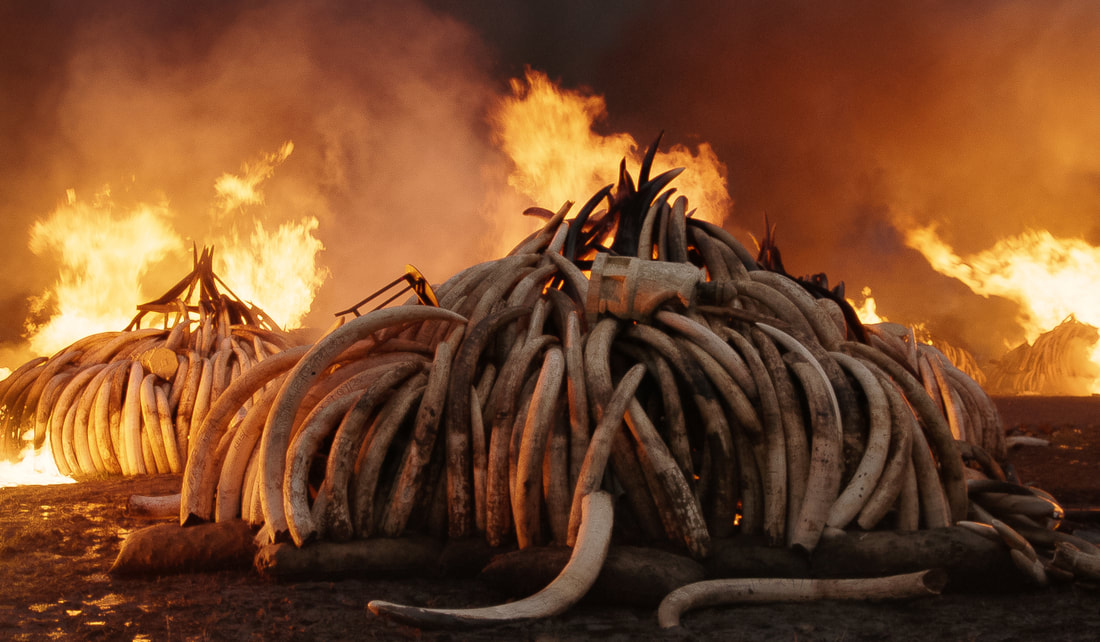|
The Breadcrumbs widget will appear here on the published site.
A New Age, a New ConcernBy Alex Carrigan Over the last several decades, we've seen more and more filmmakers using cinema to highlight and show the radical change on our environment as environmental subjects come into discussion. Films like An Inconvenient Truth and Chasing Ice discuss the effect of climate change and the diminishing ozone layer right as climate change became hotly debated by politicians and college debate teams. Films like The Cove study poaching and animal endangerment, when more and more species enter the endangered species list. As time passes, more documentaries call to attention the changing world and how humans are responsible for these changes and how they can try to reduce the effects. The documentary Anthropocene: The Human Epoch raises the idea that all of these studies and reports are indicative of a greater environmental change, suggesting that we've now entered a period where humanity affects the earth's natural processes more than all other natural forces. The film, which recently premiered at the Sundance Film Festival as part of the Spotlight program, travels all over the world to show various locations where great natural changes have occurred due to human impact, such as extraction, terraforming, anthroturbation, etc. The film highlights research from the Anthropocene Working Group, a group which studies the effects of this epoch on the world and presents studies and research to reduce the negative impact on various environments.
The film, unlike most documentaries, does not have much of a narrative, nor does it rely on voiceover (provided by Alicia Vikander). The documentary, which took four years to create, instead relies on its imagery, showing time lapse footage, aerial and drone shots, and other creative ways to demonstrate these environmental changes. The film is content to let the viewer draw their own impressions from these shots, contrasting images like the concrete seawalls in China to the slowly sinking city of Venice, Italy. Even the interviews with subjects are very brief and focus more on showing the environment around them. In a sense, the film harkens back to films like Koyaanisqatsi, content to let the viewer see and experience all this change and draw their own conclusions from it. The viewer can watch as the film lingers on a coal mine in Germany and marvel on its massive excavators, and then realize just how much land they've cleared using these gargantuan machines. Of course, most times, the viewer is left to be both impressed and shocked by the scale of some of these images, most notably whenever the film uses its aerial shots of Italian marble mines or phosphate mines in Florida. There are definitely moments and scenes that will strike the viewer a lot harder. The film is bookended by the collection and destruction of several tons of ivory, which they claim represents roughly 10,000 elephants slaughtered for their tusks. These images are the ones where the film makes it difficult for the viewer to disassociate from the situation. Sure, you can recycle or have your own compost, but when you see just how much damage and destruction is caused by mineral mining or poaching, it becomes a lot harder to ignore. Anthropocene is not a documentary for everyone, as the lack of narration and narrative will be hard for some people to immerse themselves in. However, the film sets out to accomplish its goal, which is to show how much human progress and technological development is affecting our world more and more. The film could have used a little more in the way of statistics or information to help show how much has progressed in certain areas over time and where it could go, but the documentary would rather you see just how far it has gone. The documentary is even just one part of a project to spread awareness of the Anthropocene epoch (including several museum exhibits and photo releases), and with a platform like Sundance, it's possible that this will help spread more awareness and see more change in the near future.
0 Comments
CommentsYour comment will be posted after it is approved.
Leave a Reply. |
AuthorWrite something about yourself. No need to be fancy, just an overview. Archives
July 2024
Categories
All
|



 RSS Feed
RSS Feed






